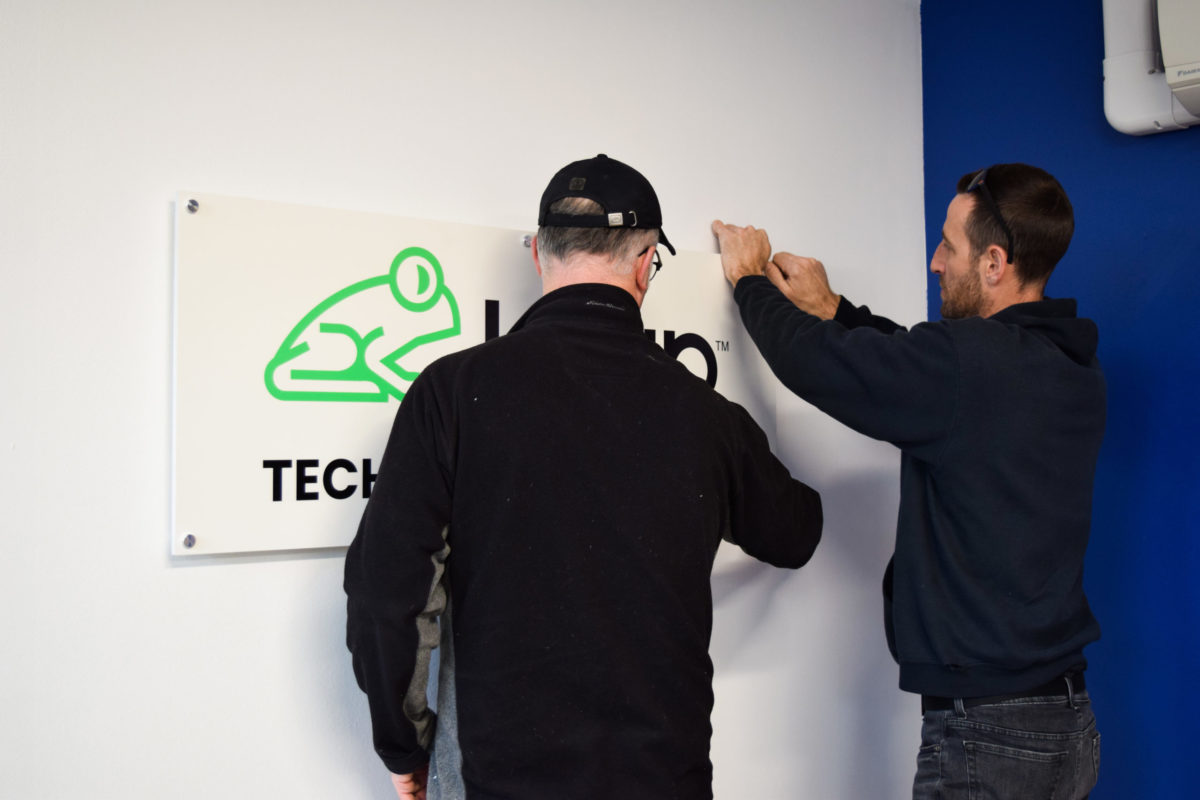A technology product can be created with the latest advances and the best design, but its success is also up to the market.
“At its core, the best product to sell is the one that is the most needed,” said Patrick Fingles.
The CEO of Columbia-based startup Leap believes he is seeing that play out among the contractors and home improvement firms that make up the home services market. The company’s application includes digital tools for the folks working on remodels and repairs to complete the in-home sales process that comes along with a job, such as completing estimates and proposals, as well as financing plans and contracts. It also makes it easier to gather data and integrate with a CRM. It has elements of software that can power a point-of-sale and a sales presentation.
In short, it’s bringing technology to an industry that has been slower than others to adopt digital tools.
“It represents one of the greatest economic verticals in the marketplace that has little to no technology,” Fingles said.
At the same time, in a world where paper checks and hastily scrawled agreements on loose Post-it notes still reign, the consumers are coming to expect tech to be involved to provide a measure of transparency and protection.
In the middle of those two demands, the four-year-old company has seen growth. It ended 2019 with more than 800 contractors using its core product, and started that same year with nine employees and ended with 33. This year, it expects to grow to 68 employees, with expectations to bring on talent in engineering, support, sales and marketing. Its office space has also grown, from about 1,200 square feet to 9,000 square feet inside a flexible office space developed by COPT called CIRQL.
Along with a strong brand, Fingles said a key to success so far has been in the design of the product. The product was spearheaded by CTO Steve Stencil while he was a sales rep for a home improvement firm. Stencil built the product based on what he wanted to see and his own experiences.
For Fingles, it brought to mind another mantra: “The best products are built out of need, by the people that need it.”
With growth, the company is also working in the community. Fitting with its name, the company’s efforts were centered around the leap year: On Feb. 29, 20 employees from the company renovated a technology room at Boys & Girls Clubs of Metro Baltimore in Baltimore’s Brooklyn neighborhood. The company also donated furnishings, four tablets and a gaming center.
The challenge has been embraced around the company, and it’s spreading the message all year.
“Everybody gets an extra day,” Fingles said. “How are you going to spend it?”
Join the conversation!
Find news, events, jobs and people who share your interests on Technical.ly's open community Slack

Baltimore daily roundup: Medtech made in Baltimore; Sen. Sanders visits Morgan State; Humane Ai review debate

Baltimore daily roundup: An HBCU innovation champion's journey; Sen. Sanders visits Morgan State; Humane Ai review debate

Baltimore daily roundup: The city's new esports lab; a conference in Wilmington; GBC reports $4B of economic activity


